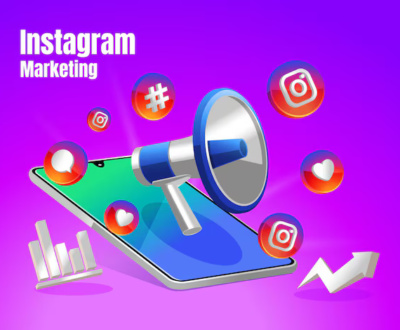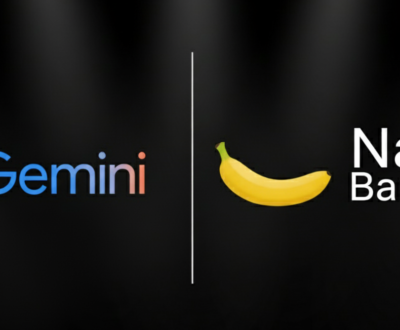Ecommerce Pagination SEO: Fix Errors to Boost Rankings
- July 29, 2025

In the world of e-commerce pagination SEO, one seemingly minor misstep can lead to significant SEO issues that can quietly erode your site’s organic visibility, traffic, and sales. Many online retailers unknowingly make pagination SEO mistakes that not only sabotage their ranking potential but also leave Google unable to crawl or index critical product pages. Understanding how and why poor pagination SEO problems emerge—and how to fix them—is crucial for any e-commerce business determined to dominate search results.
What Is Pagination and Why Does It Matter for E-Commerce SEO?
Pagination refers to dividing large sets of content, like product listings or blog articles, across multiple sequential pages (e.g., page 1, 2, 3, etc.). For e-commerce sites with hundreds or thousands of SKUs, pagination is standard practice to make navigation manageable for users and reduce page load times. However, how pagination affects e-commerce SEO is often overlooked.
When pagination is poorly implemented, it can result in:
- Crawling issues from poor pagination
- Duplicate content from pagination
- Inefficient use of Google crawl budget pagination
- Indexing issues on pagination e-commerce sites
Core SEO Problems Caused by Poor Pagination
1. Crawling and Indexing Issues
Modern search engines, including Google, sometimes struggle to efficiently crawl paginated pages. Without clear signals, search bots might stop crawling deeper pages, leading to SEO impact of bad pagination where important products remain unindexed. This can wreck your discoverability, especially for product pages beyond the first or second page.
2. Duplicate Content and Diluted Rankings
One of the most common pagination SEO mistakes is not handling duplicate content arising from similar or identical titles, meta descriptions, and on-page elements across paginated URLs. This leads to cannibalization, where pages compete against each other or, worse, Google devalues all of them.
3. Crawl Budget Waste
Google allocates a finite crawl budget for each site. Pagination crawl errors and unnecessary crawl loops triggered by endless pagination (infinite scroll) or broken navigation consume this budget. As a result, new and important content might go unvisited—and unindexed—by search engines, impacting your SEO performance.
Key SEO Elements to Watch in Paginated E-Commerce Sites
1. Canonical Tags in Pagination SEO
Implementing proper canonical tags in pagination is essential to tell Google which version is the master page, reducing the risk of duplicate content from pagination. Always ensure that each paginated URL either canonicals to itself or, in some cases, the main category page—depending on site architecture.
2. Rel=Next/Prev and Modern Alternatives
After Google deprecated rel=next prev support, many sites were left confused about how to guide search bots. Today, optimizing paginated URL SEO optimization means using structured internal linking, proper canonicalization, and engaging sitemaps for SEO impact of bad pagination. Look into rel=next prev alternatives 2025 and stay updated with Google’s recommendations.
3. Infinite Scroll vs. Pagination SEO
Infinite scroll may provide a smooth user experience, but it presents major challenges for e-commerce pagination SEO if not handled carefully. Search engines cannot crawl content loaded dynamically by JavaScript unless additional development is done to expose all product URLs in the site’s HTML or secondary page versions.
Best Practices: Pagination SEO Solutions for 2025
- Use pagination best practices for SEO in all product categories.
- Provide static, crawlable HTML links to all paginated pages.
- Avoid duplication: Structure meta titles (e.g., “Men’s Shoes – Page 2”) and unique meta descriptions for each paginated page.
- Employ advanced internal linking and sitemaps to ensure bots easily find all paginated content.
- Set clear, self-referencing canonical tags for paginated pages unless your site strategy dictates otherwise.
- If using infinite scroll, also provide paginated URLs or alternate versions for bots.
- Monitor crawl stats in Google Search Console for crawling issues from poor pagination and audit for crawl loops or bottlenecks.
Real-World Examples: E-Commerce Pagination Errors
Sites that mishandle product category pagination or leave search bots unable to reach key URLs due to AJAX or JavaScript-only content can see hundreds—or thousands—of products fall out of Google’s index. Once-page-one products can disappear, and user experience may suffer, reflecting directly on sales.
Advanced Pagination Strategies
Technical SEO for e-commerce is evolving. Some recent approaches include:
- Utilizing advanced sitemaps for changing inventory
- Creating topic clusters to group paginated content
- Leveraging technical SEO e-commerce audits with AI to uncover hidden SEO problems with product pagination
- Analyzing pagination SEO case studies to benchmark against industry leaders
Conclusion: Protect Your E-Commerce SEO With the Right Pagination Approach
Your e-commerce site’s pagination might seem trivial, but implementing it incorrectly can trigger crawling, indexing, and ranking catastrophes. Consistently applying proven pagination best practices, leveraging canonical tags, and regularly auditing for pagination SEO mistakes will ensure maximum visibility and traffic for your product categories.
Don’t let a technical misstep devastate your online presence. Regularly audit and fix e-commerce pagination errors, and you’ll unlock more organic traffic and sales—while outpacing competitors.
Partner With the Best: 1into2 Digital
If navigating the complexities of pagination SEO issues and fixing technical obstacles feels daunting, let the experts handle it! At 1into2 Digital, we have a passionate technical SEO team trained to resolve crawling, indexing, and site structure challenges for e-commerce businesses at scale. Trust us to implement cutting-edge SEO solutions so your products stay visible, discoverable, and profitable in search results. Reach out today to ensure your pagination and site structure give you a real competitive edge!
FAQs
Pagination divides large product listings into multiple pages, improving site speed and user experience. Proper pagination helps search engines crawl and index your product pages efficiently, boosting SEO by avoiding duplicate content and crawl budget waste.
Poor pagination can cause duplicate content, indexing issues, and crawl budget problems. This may lead to important product pages being missed by Google, diluted rankings, and lost organic traffic, ultimately hurting sales.
Use self-referencing canonical tags, clear crawlable URLs, unique meta tags for paginated pages, and avoid infinite scroll without fallback paginated URLs. Regularly audit crawl stats and fix any indexing or crawl errors on paginated pages.
Google deprecated rel=next and rel=prev in 2024, so focus now on clear internal linking, canonicalization, and proper sitemap configuration to help search engines understand and rank paginated content.
Infinite scroll improves user experience but can hurt SEO if search bots cannot crawl all product URLs. If using infinite scroll, also provide static, crawlable paginated URLs so search engines can index all products properly.








